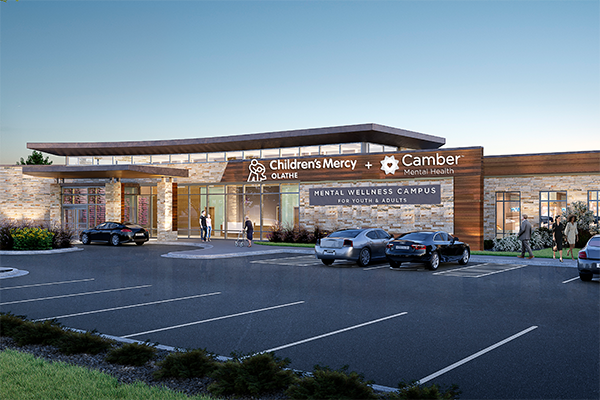Journaling Provides Healing for Girl Who Experienced Abuse

This story was selected as a winner during our 2017 summer story contest and was submitted by Lauren Fouts, Hospital Admissions Coordinator at KVC Prairie Ridge Children’s Psychiatric Hospital in Kansas City, KS.
Megan was 9 years old when she arrived at KVC Prairie Ridge Hospital for psychiatric treatment. At first, she didn’t exhibit any of the standard behavioral or emotional challenges we often see. She was pretty easygoing but required our help to process trauma that she had experienced.
Since the age of 8, Megan had been severely sexually abused by her step-father and a neighbor. Megan’s mother had her own challenging disabilities, so she was unable to provide much support. Megan was on her own a lot. She had to take care of herself, prepare her own meals and get to school. She was also emotionally attached to her abusers, only revealing the truth to an adult at school because her step-father drank a lot and she wanted him to get help for that.
When Megan first arrived at KVC, she felt self-conscious and guilty. She blamed herself for splitting up her family because of the secrets she told. She was scared and always wanted to hide from people. Megan only opened up to a few people at KVC, but she wanted to talk to me each day when I arrived for my shift. She started confiding in me, little by little, telling me pieces of her past when she felt strong enough. Her entire body would shake when she talked. One thing that is great about KVC is that we can call a therapist or campus supervisor for more support. The clinical director for KVC Hospitals was able to join me in talking with and listening to Megan as she talked about her difficult experiences.
The clinical director and I later discussed how I could help Megan remain calm in order to process some of the trauma at our next meeting. One idea we tried was placing a cool washcloth on Megan’s head to help her focus on the present instead of the things that she had been through. Another idea was to have her focus on things she can change rather than things that can’t be changed. Megan was interested in journaling, so we encouraged her to write letters in her notebook to her dad or whomever she wanted to in order to express her feelings. Through journaling, Megan was able to say everything she was feeling. She was able to confront the trauma, abuse, guilt, and shame that she was working to understand and begin to heal from it.
We saw a huge change in Megan’s behavior and the way she felt about herself. She began to let go of the blame she felt and started to like herself again. While at KVC Prairie Ridge, she grew to understand how the trauma affected her and how to better manage her emotions. Megan was discharged back into the care of her mother, who had also been working hard to build up her parenting skills so that her daughter could safely return home.
Megan and her mother continue to work on rebuilding trust and tackling any challenges that come along. As Megan has gotten older, she’s had to return to the hospital for additional support as she will continue to process her trauma in different ways at different ages. We can give her the tools to process and manage her emotions and work with her family to help her succeed at home.
While working with Megan, it was important to be consistent and connect with her when she needed help. Her interest in journaling played a big part in her healing and helped me work with other youth to infuse what interests and inspires them into their treatment. The staff at KVC Prairie Ridge helped Megan gain confidence and learn to trust again. Any time I see her, she gets excited and runs up to me. It makes me proud to know that this will always be a safe place for her and that she has an amazing group of people to support her.
*Name has been changed and a stock photo has been used to protect Megan’s identity.
KVC Hospitals provides behavioral health services for children and teens ages 6-18 who struggle with depression, anxiety, trauma, suicidal thoughts, and other mental health challenges. Each year, we help thousands of youth through our network of inpatient hospitals and psychiatric residential facilities by providing treatment, care, and skill-building so they can understand their diagnoses, connect to their support network and thrive.






